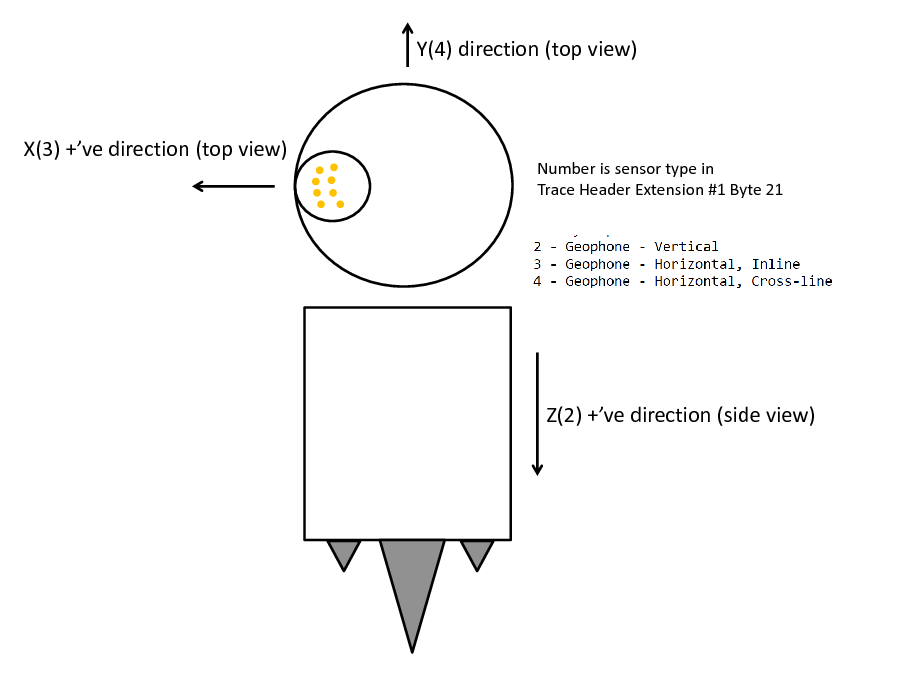obspy.io.rg16 - Receiver Gather v1.6 read support for ObsPy¶
Functions to read waveform data from Receiver Gather 1.6-1 format. This format is used to store continuous data recorded by Farfield Nodal‘s Zland product line.
| author: | Derrick Chambers Romain Pestourie (Ecole et Observatoire des Sciences de la Terre) |
|---|---|
| copyright: | The ObsPy Development Team (devs@obspy.org) |
| license: | GNU Lesser General Public License, Version 3 (https://www.gnu.org/copyleft/lesser.html) |
Note
- In order to homogenize the units, fields concerning frequencies parameters are expressed in Hertz (ie alias_filter_frequency, test_signal_generator_frequency_1...) and fields concerning time are expressed in second (channel_set_end_time, test_signal_generator_activation_time...), except for the dates.
- Documentation about fcnt format can be found in the directory obspy/io/rg16/docs.
Instrument Orientation¶
Because there is not a standard method for instrument orientation, mapping orientation codes to Z, N, E is not possible without knowledge of how the instruments were deployed. Orientation codes returned are 2, 3, 4 which relate to the instrument position as illustrated in the following diagram:

Reading the waveforms¶
Reading RG16 is handled by using ObsPy’s standard read() function. The format can be detected automatically, however setting the format parameter as “rg16” lead to a speed up. Several key word arguments are available: headonly, starttime, endtime, merge, contacts_north, details. They are passed to the obspy.io.rg16.core._read_rg16() function so refer to it for details to each parameter.
>>> import obspy
>>> from obspy.core.util import get_example_file
>>> filename = get_example_file('three_chans_six_traces.fcnt')
>>> # these are all equivalent:
>>> st = obspy.read(filename)
>>> st = obspy.read(filename, format='rg16')
If the file is very large, using the merge parameter may speed up downstream processing significantly.
>>> st = obspy.read(filename, merge=True)
If the instruments are single component, or if the gold contact terminals were deployed facing north, setting contacts_north to True will result in a stream with seed compliant channel codes with orientations Z, N, E.
>>> st = obspy.read(filename, contacts_north=True)